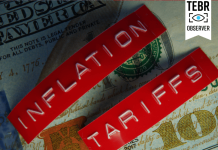By Emil Bjerg, journalist and editor
Donald Trump has repeatedly announced drastic tariffs in his upcoming presidency. What are the potential effects and consequences in the US and beyond? And is Trump actually going through with his controversial tariffs?
The election of Trump has ignited a lot of policy speculations. For businesses operating internationally, the most essential issue is tariffs.
Tariffs – essentially import taxes – have been a favorite election topic for Trump, who has called tariffs the “the most beautiful word in the dictionary” and even said they can pave the way for global peace.
Trump has proposed a 10% to 20% tariff on all imports from all countries except China, and a drastic 60% tariff on all imports from China.
Effects in the US: Consumer
Proponents of tariffs see the fees as a way to shield American industries, particularly manufacturing, from foreign competition. The idea is that by making imported goods more expensive, domestic products become more attractive to consumers.
However, many economists and industry experts are worried about the actual effects. In the US, consumers can expect to pay significantly more for goods like clothing and electronics – should the tariffs be imposed. The Consumer Technology Association estimates that these tariffs could result in price hikes of 45% for laptops and tablets and 25.8% for smartphones. Such increases would likely be passed on to consumers, potentially decreasing demand and sales volumes.
In other words, the purchasing power of American consumers, a central theme for the 2024 elections, could be further limited by tariffs.
While Trump has promised American citizens that tariffs are “not going to be a cost to you, it’s a cost to another country”, economists generally call that misleading.
European and Chinese Implications: Risk of Recession and Trade War
From a European perspective, Trump’s proposed tariff plans could have severe implications for EU economies and trade. According to the European Commission, the EU exported €502.3bn in goods to the US in 2023, accounting for 20% of EU exports.
Analysts from the Dutch bank worry that the suggested tariffs “would cause a collapse in exports to the US”. They predict that tariffs could cut 1.5% off European growth, potentially putting the Eurozone, where many countries are already struggling, in recession.
From China’s perspective, the proposed tariffs represent a significant threat to its export-driven economy. It’s likely that China would respond with retaliatory measures, potentially leading to a renewed trade war.
Will Trump Actually Impose Tariffs?
Trump reiterated his promise to impose tariffs in his victory speech: “promises made, promises kept” is a slogan he tours with following his win.
However, the transition from campaign promises to actual policy often involves more nuanced planning and consideration of various economic and political realities. This is especially true for a politician like Trump, who has a more spontaneous character than more traditional politicians.
If Trump decides to move forward with his proposed tariffs, he will likely face intense lobbying and arguing against his choice from companies as well as world leaders.
While the president-elect may continue to discuss his tariff intentions in broad terms, it’s unlikely that Trump will announce specific tariff plans before his inauguration. Looking into Trump’s inner circle could provide some clues.
Howard Lutnick, the chief executive of Cantor Fitzgerald, heads Mr. Trump’s transition team. He’s a big proponent of tariffs on imports from China as a substitute for income tax.
In a recent – disputed – statement, Lutnick recently said: “Don’t tax our people. Make money instead. Put tariffs on China and make $400 billion”.
However, another key member of Trump’s new inner circle, Elon Musk, has been a public critic of tariffs. As the CEO of Tesla, Musk relies heavily on global supply chains for components and materials. Tariffs could significantly increase costs and complicate procurement for his companies. In May 2024, Elon Musk said “Tesla competes quite well in the market in China with no tariffs and no deferential support. I’m in favour of no tariffs.”
If Trump decides to move forward with his proposed tariffs, he will likely face … lobbying against his choice. Many U.S. companies, particularly those relying on global supply chains, would likely lobby against extensive tariffs.
Whether Elon Musk decides to use his position in Trump’s inner circle to argue against tariffs is up for speculation. Just as we can only speculate whether Trump’s tariff threats will shake global trade in 2025—or if they are merely a negotiating bluff.


































